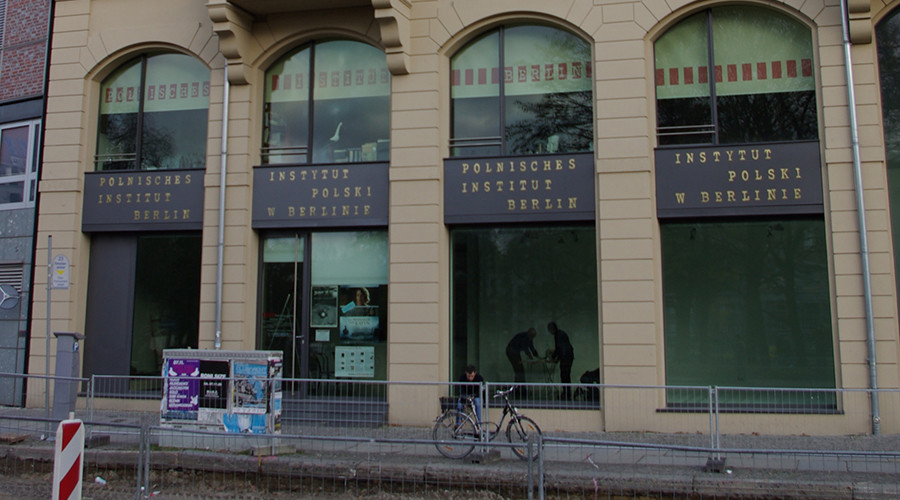Politics
Polish Embassy in Berlin Denies Director Was Fired for Jewish-Themed Programming
Internal documents suggest the ambassador's involvement in her dismissal.

Internal documents suggest the ambassador's involvement in her dismissal.

The Polish Embassy in Berlin has come out vehemently rejecting the claim that Polish Institute director Katarzyna Wielga-Skolimowska was fired last week because her programming focused too heavily on Jewish themes.
“To link the decision to recall our colleague Katarzyna Wielga with the assertion that it was due to ‘closeness to Jewish themes’ is not only misleading and wrong, but particularly irritating,” reads a letter from embassy press attache, Jacek Biegala, obtained by JTA. JTA further reports that personnel at the embassy have contacted the German dailies Berliner Zeitung and TAZ—the publications that carried the news on December 5—demanding a public correction.
Contributing to Wielga-Skolimowska’s dismissal, which made waves in the international media, was Andrzej Przyłębski, the Polish ambassador to Germany, according to TAZ.
According to a document dated October 17, obtained by TAZ, Przyłębski sharply criticizes the fired director’s work.
“Blindly imitating nihilistic and hedonistic trends won’t lead to anything positive in terms of civilization,” he reportedly writes, adding, “Poland has to oppose this.”
He then goes on to assert that the Polish Institute shouldn’t put an emphasis on Polish-Jewish themes, “and especially not in Germany, which should not assume the role of a mediator” in this respect.
In the document, Przyłębski criticizes the guests that the Berlin institute invited to represent contemporary Polish culture. “Especially now, it is important to invite guests who understand the situation [in Poland] and who are able to talk about it convincingly,” he writes. Rather than visual artists or avant-garde musicians, he suggests inviting authors and publishers dedicated to “historical prose.”
What that engagement with historical themes might entail could be a narrative more in line with Polish prime minister Piotr Gliński’s “politics of memory.” As described by the Guardian, it’s a “policy that aims to highlight Polish heroism and sacrifice throughout history.”
With a department in the ministry of culture dedicated entirely to this policy, it “depends in part for its daily running upon measures—condemned by the United States and a range of European bodies and officials—to control the media, the internet and the judiciary,” the Guardian reports.
Meanwhile, the dismissal has been sharply criticized in the German capital and beyond. In an initiative by Cilly Kugelmann, deputy director of the Jewish Museum in Berlin, an open letter was sent to Polish authorities calling the dismissal “an unjustified and inexplicable decision.”

The Polish Institute in Berlin.
Signed by the head of the Berliner Festspiele, Thomas Oberender; the director of the Maxim-Gorki-Theater, Shermin Langhoff; and the head the Berlinische Galerie museum, Thomas Koehler, among others, the letter states: “One could not possibly find a better person to promote Polish culture. She [Wielga-Skolimowska] has an exceptional talent for communication.”
Kugelmann also told Der Tagesspiegel that the former Polish cultural institute’s director promoted “an image of a young intelligent country that is ready to face its history.”
What the programing of the institute’s interim director Małgorzata Bochwic-Ivanovska might look like could be indicated by the fact that she tried to promote the propaganda film Smolensk, which no theater in Berlin would agree to screen.